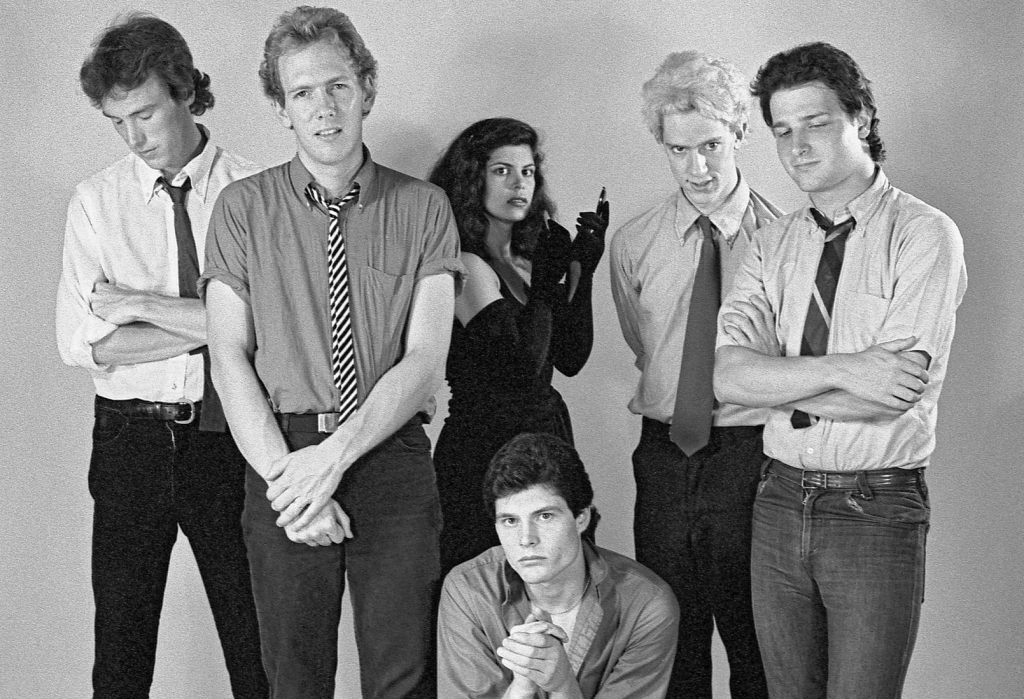
Compared to Blondie, inspired by Elvis Costello and opening for the Ramones at Lupo’s Heartbreak Hotel, The Mundanes roused Providence in the late ’70s and early ’80s. After they left for New York, their keyboardist John Linnell went on to form They Might Be Giants with John Flansburgh. As the Giants return to Providence, Sean Carlson steps back in time with The Mundanes’ cofounders Marsha Armitage-Bristow and John Andrews in an interview for Motif.
Sean Carlson (Motif): Tell me about those early days. How did The Mundanes start?
John Andrews: While at Brown, I played colleges and coffeehouses solo, even opening for Phil Ochs. After starting a band rooted in swing called Johnny & The Luncheonettes, we reformed in 1978 as Johnny Mundane and the Tyranny of Everyday Life. In 1979, we morphed into The Mundanes. It seemed like musical gymnastics sometimes, but it all worked.
Marsha Armitage-Bristow: The name was very tongue in cheek, you know. No one ever said anything to me about our name, but we were surrounded by bands with names like Talking Heads, The Young Adults and Rubber Rodeo.
SC: And what was the music scene like in Providence at the time?
MAB: Providence had a great scene. Musicians came from all walks of life and brought their own style. The Met Café and Lupo’s kept us all busy performing and watching other bands. The city was small, with a lot of talent. It was also a nurturing place to grow up and raise a child.
JA: At the time a lot of local musicians were trying to figure out how to transition from the kind of roots music that was so popular in Rhode Island to something more in keeping with the new stuff coming out of the UK. I think we were definitely among the leaders in that transition.
SC: What happened after you made the move to New York in 1981?
MAB: One of my most memorable nights was opening for Spinal Tap at CBGB’s. They never broke character until after the show. Otherwise, the elusive record deal never materialized and we all were assimilated into the New York jungle eventually. I worked at the Museum of Modern Art. I guess we just started doing well at our jobs and making a living was a good thing.
JA: I didn’t believe I could make a living in Rhode Island in the music business. The band got us to New York. From there, we each went into different professional careers. I got started in animation and broadcast design and eventually produced “Beavis & Butthead” and “Daria,” but I’ve always kept playing music in one form or another.
SC: What has your relationship with They Might Be Giants been like over the years?
JA: As early as The Mundanes days, John Linnell started showing us things he’d written. We even rehearsed “Now That I Have Everything,” but he sang in a whisper. It was hard to make out where these clever circular chord changes were going or what he had in mind. Let me say John and John were a local phenomenon in New York in the ’80s. They both had an explosion of creativity as songwriters, and the combination was electric.
MAB: Yes, that’s true. John Linnell is a lovely person. He’s like a creative genius in a puppy costume. Good things happen to good, hard-working people. They Might Be Giants hit a collective conscious that still resonates with so many age groups. I am proud of what he and John Flansburgh created, and that helps keep The Mundanes alive. Nostalgia is a powerful thing.
While The Mundanes don’t have any reunion shows scheduled, They Might Be Giants will celebrate the 30th anniversary of their iconic album Flood on Fri, Feb 7 at The Columbus Theatre, 270 Broadway, PVD.

